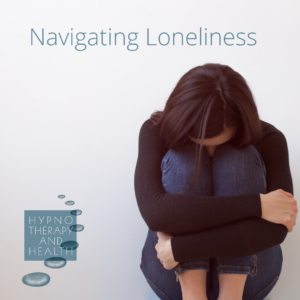Navigating Loneliness with Solution-Focused Thinking
Loneliness is a common and challenging emotion that many people experience at some point in their lives. It can  arise from various circumstances, including social isolation, life transitions, or feelings of disconnection. However, it’s important to note that loneliness can be addressed with a solution-focused approach, so let’s start navigating loneliness with solution-focused thinking, which focuses on practical strategies and solutions to improve emotional well-being.
arise from various circumstances, including social isolation, life transitions, or feelings of disconnection. However, it’s important to note that loneliness can be addressed with a solution-focused approach, so let’s start navigating loneliness with solution-focused thinking, which focuses on practical strategies and solutions to improve emotional well-being.
1. Identify Your Triggers
The first step in overcoming loneliness with a solution-focused mindset is to identify the specific triggers or situations that make you feel lonely. Is it the absence of social interactions, a lack of meaningful connections, or a recent life change? Understanding the root causes of your loneliness can guide your efforts toward finding solutions. This way you are beginning to take control which will also give you a boost.
2. Set Clear Goals
Once you’ve pinpointed the triggers, set clear and achievable goals related to alleviating your loneliness. Achievable goals here are super important. We can often almost try too hard, and then we are setting ourselves up for a fall. Be realistic. What kind of connections or social experiences are you looking for? Are you seeking new friendships, deeper relationships with existing friends, or a sense of belonging within a community? Setting well-defined goals is essential for a solution-focused approach.
3. Leverage Your Strengths
Recognize your strengths and capabilities. Everyone possesses unique qualities and skills that can be harnessed to combat loneliness. Focus on what you’re good at, whether it’s initiating conversations, being a good listener, or having a sense of humour. Your strengths are valuable assets in building connections. So really take note of them and if you are unsure what they are as someone close to you. It can be amazing what you will hear back
4. Positive Self-Talk
Challenge negative self-talk and self-doubt. Replace self-criticism with self-affirming statements. Remind yourself of your worth and that you have the potential to form meaningful connections. Building self-esteem is a fundamental aspect of addressing loneliness. Writing affirmations down on post-it notes can be a good idea, or popping a piece of card in your pocket or wallet – so that you have a good affirmation on your person at all times.
5. Actively Seek Social Interaction
Proactively seek opportunities for social interaction. Join clubs, organisations, courses or online communities aligned with your interests and passions. Engaging in activities you love can lead to meaningful connections with like-minded individuals. So think about activities that have caught your eye before, write them down and do a bit of research to see if there are any local organisations or courses near you.
6. Embrace Novelty
Be open to new experiences and novel situations. Sometimes, loneliness can be overcome by stepping out of your comfort zone and trying something new. Attend events, classes, or workshops that expose you to unfamiliar faces and ideas. Remember positive interaction is key to our mental wellbeing.
7. Reconnect with Existing Relationships
Reconnect with existing friends and acquaintances. Reach out to people you may have lost touch with or with whom you’d like to deepen your connection. Sometimes, rekindling old friendships can be a fulfilling solution to loneliness.
8. Offer Help and Support
One of the most effective ways to combat loneliness is to provide help and support to others. Being of service not only connects you with people but also brings a sense of purpose and fulfilment. There are loads of organisations out there needing volunteers – and you will be so appreciated.
9. Accept Imperfection
Acknowledge that no one is perfect, and no relationship is flawless. Embrace the imperfections in yourself and in others. Building connections means embracing the humanity in all of us. And don’t believe everything you see or read on social media!
10. Focus on Quality Over Quantity
Prioritize the quality of connections over the quantity. A small circle of close friends can be more meaningful than a large group of acquaintances. Concentrate on fostering deep, genuine relationships. Good friends will always be there for you.
11. Positive Visualization
Visualize successful social interactions. Imagining yourself engaged in meaningful conversations and forming connections can boost your confidence and motivation to seek out social opportunities. Visualisation is so important for our brain, you can do amazing things when you visualise yourself doing it. I work with lots of clients with fears and phobias and visualisation is such a powerful tool.
12. Seek Professional Help
If loneliness becomes overwhelming or persistent, consider seeking professional help. They can offer guidance and support tailored to your unique situation.
In conclusion, loneliness is a challenging emotion, but it can be addressed with a solution-focused mindset. By identifying triggers, setting clear goals, leveraging strengths, seeking social interactions, and being open to new experiences, you can navigate loneliness and build meaningful connections. Remember that solutions are within reach, and taking proactive steps can lead to a happier and more fulfilling social life. Embrace the power of positive change and growth as you work towards overcoming loneliness.
If you need help then do contact me by clicking this link and if you want to read about how I have helped others click here.
